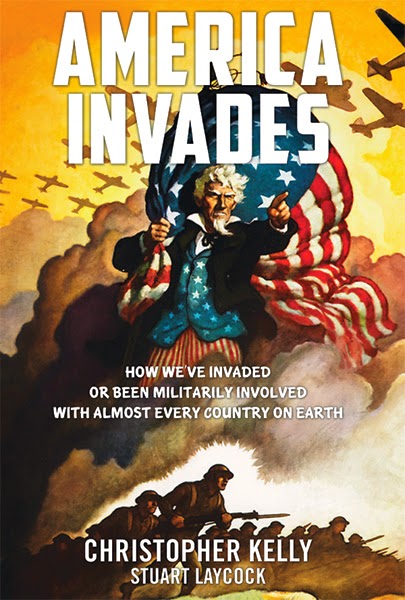 |
| Commander Kelly with B-17, Duxford (photo: Jim Hooper) |
The American Conservative Tour of London continues at the Imperial War Museum at Duxford (http://www.iwm.org.uk/visits/iwm-duxford), near Cambridge. Cambridge is an easy 45 minute train ride from London and Duxford is a short cab or bus ride from the train station. I was fortunate to be able to visit last week with some friends.
Duxford has nine enormous hangars filled with aviation history. You can walk though an experimental Concorde that could cruise at Mach 2 or twice the speed of sound. You will see biplanes and monoplanes form the earliest days of flight. There is a hangar devoted to the Battle of Britain, when Britain stood alone against Hitler's Reich. You will find Hangars devoted to naval aviation, World War II land combat and much more. The nearby airfield has historic planes and helicopters landing and taking off on a regular basis.
 |
| Close air support A-10 and P-47 (Photo: Jim Hooper) |
http://en.wikipedia.org/wiki/RAF_Bomber_Command)
Nor can one fail to recall the 40,000+ casualties that Britain suffered during the Blitz, the attacks on Rotterdam and other Allied cities and the 30,000+ casualties that resulted from the Nazi's hail of V1 and V2 rockets. You will find Anderson shelters and V1 rockets and launchers at Duxford.
Seeing these aircraft in Duxford compels us to remember some of those brave and diverse individuals who served their countries in Allied military aviation in World War II. Consider just a few of those fortunate enough to survive the war...
President George H.W. Bush (http://en.wikipedia.org/wiki/George_Bush_Sr.) was a US naval aviator who flew 58 combat missions in the Pacific theatre in a Grumman TBM Avenger. He won the Distinguished Flying Cross (DFC). Bush was shot down on September 2, 1944 and was incredibly fortunate to be picked up by a passing American submarine. His story is well told in James Bradley's 2001 Flyboys (http:/www.amzn.com/0316105848).
 |
| Jimmy Stewart 1908 - 1997
Jimmy Stewart (http://en.wikipedia.org/wiki/Jimmy_Stewart) was drafted by the US army in 1940 and became the first major American movie actor to serve in the war. He piloted over 20 combat missions in a B-24, bombing Axis targets. He won two DFC's and the Croix de Guerre. He later rose to the rank of Brigadier general in the USAF and even flew over a mission over Vietnam in a B-52 (also on display at Duxford) while in the reserves. He starred in the Glenn Miller Story among many others.
|
 |
| Sir Kenneth Adam |
Joseph Heller, the author of Catch 22, served as a bombardier on a B-25 in 60 combat missions while based in Corsica. (http://en.wikipedia.org/wiki/Joseph_Heller).
 |
| Roald Dahl |
Roald Dahl (http://en.wikipedia.org/wiki/Roald_Dahl), author of Charlie and the Chocolate Factory and many other books, was one of "the few" who served in the RAF during World War II. He crashed in a Gloster Gladiator in Africa and was nearly killed. He became an ace while later flying a Hawker Hurricane in the Greek campaign. He wrote memorably about his RAF experiences in Going Solo (http:/www.amzn.com/0142413836). He later served in British intelligence alongside Ian Flemming.
Visiting Duxford is a marvellous antidote to the prevailing view of war that popular culture seems to accept today and is best exemplified by George Carlin (http://en.wikipedia.org/wiki/George_Carlin)... who famously claimed that we Americans love war.
If you loathe the USA and believe that American military power is primarily deployed in "bombing brown people" then a visit to Duxford may open your eyes a bit. Note carefully the Orwellian elements in the late Carlin's routine. For Carlin "critical thinking" means a willingness to swallow unfounded conspiracy theories. "Thinking for yourself" means hewing closely to the Marxist / Freudian / Chomsky party line. "Americans love war!"
 |
| Tuskeegee Airmen |
 |
Carlin was able to exercise his freedom of speech defaming his country and make a pretty good living doing it because of the sacrifices of those who served in the allied armed forces. The counterculture is now mainstream, in case you hadn't noticed.
Commander Kelly agrees with Freud that sometimes, "a cigar is just a cigar!" Moreover, Sometimes a fuselage is just a fuselage!
"SCISSORS BEAT PAPER," Amen!
Please Pre-order your copy of America Invades here...www.amzn.com/1940598427
Glenn Miller's American Patrol
Glenn Miller 1904 - December 15, 1944 MIA
Commander Kelly's first book, America Invades, is now available here...www.americainvades.com
and on Amazon...www.amzn.com/1940598427






























